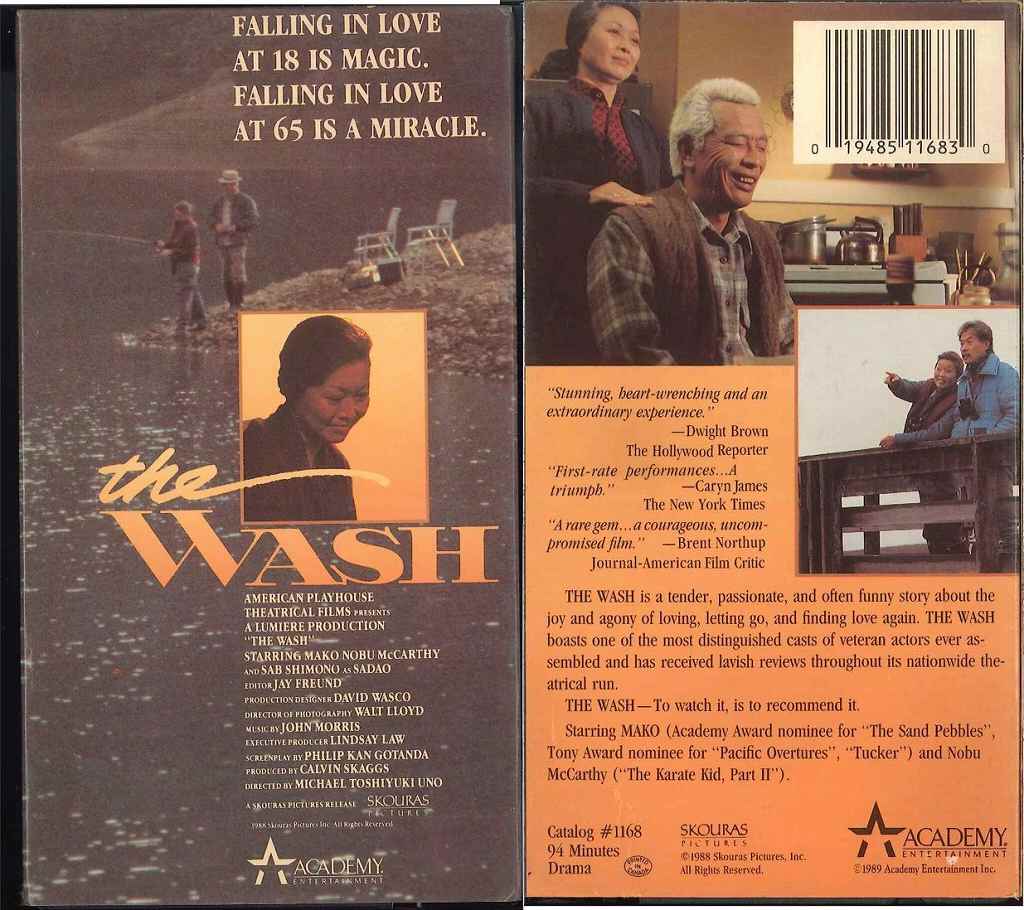


The Wash
1988
Calvin Skaggs
Michael Toshiyuki Uno/
94
日系三世の劇作家フィリップ・カン・ゴタンダによる演劇の映画化。演劇のアメリカ初演は1985年。 脚本家ゴタンダの身の回りにおきた二つの実話をもとにして書かれている。一つは夫と離婚し他の男性と新しい関係を築いた2世の女性、もう一つは離婚後もかつての妻のところに芝を刈りにいく2世の作家である。ゴタンダは後者の話に出てくる芝を洗濯に置き換えて、日系老夫婦の物語を書いた。 日系女性のマシは、家父長的な性格を持ち、文句ばかり言っている夫ノブから離れ、一年以上、別居状態を続けている。だが、その間マシはずっと洗濯をするためにノブの家を訪れていた。やがて、マシにはサダオという新しい恋人ができ、釣りを通して愛情が深まっていく。マシは離婚を決意する。ノブは承服しないが、決意の固いマシを前にして、なすすべがない。ノブは子供とも問題を抱えている。黒人と結婚し、黒人との子供が生れた娘をなかなか許すことができない。自立心の強い女性をテーマに描いているが、自己中心的なノブもまた、ゴタンダは愛情を込めて描いている。 老夫婦の役はノブ・マッカーシーとマコ・イワマツという日系を代表する役者が演じた。1988年ロサンゼルスのリトル・トーキョーでの公開時には役者がすべて日系アメリカ人であること、マコとマッカーシーのベッドシーンがあることが話題になった。
After what is implied to be many stressful years of mistreatment, Masi leaves Nobu early in the story, due to his intolerably sexist nature, is able to move on, and begins dating the widower Sadao. Nobu does not similarly move on and begins to panic at the loss of Masi. As a result of this "abandonment", as Nobu tends to classify it, Nobu is forced to confront both his traumatic memories of the Japanese American internment camps, which the story establishes as the root of his inflexible nature, and the reality of the consequences this inflexibility has finally produced for him. The story does not end with any reunion between Masi and Nobu; Masi not only stays with Sadao; she also, symbolically, in the final scene, refuses to any longer launder Nobu's clothes for him, as she had during all their years of marriage. It is this aspect of the plot from which the story's name is obtained.
演劇/日系アメリカ人/映画
アメリカ
